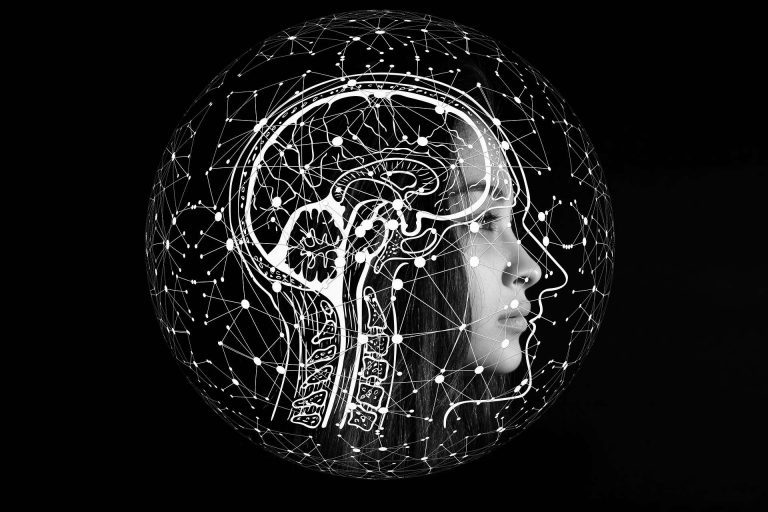The swift development of artificial intelligence (AI) has significantly affected society, influencing economic and cultural aspects alike. Similar to how email became commonplace, AI’s growth is transforming various elements of daily life, particularly in education. Its seamless integration into personal and professional tasks highlights its potential to enhance productivity, gradually overshadowing traditional writing services. As AI tools continue to grow in prominence, platforms like PaperTyper.AI, which assist with completing papers, are being pushed aside as students increasingly turn to AI for their “type paper for me” needs.
Understanding AI
Artificial intelligence allows machines to carry out activities that usually demand human intelligence. Applications and devices integrated with AI can make decisions, solve problems, process and replicate natural language, and learn from various data sources. As AI technology advances, these tools are becoming more adept at managing complex tasks with higher precision.
The introduction of OpenAI’s ChatGPT, a natural language processing chatbot, at the end of 2022 drew significant attention to AI for a lot of people. However, AI has actually been present in technology for quite a while. Whether you’re playing chess against a computer, using digital assistants such as Siri or Alexa, or scrolling through social media, you have probably interacted with AI technologies. This widespread use of AI across different platforms has made its capabilities more familiar and accessible, with many students now opting for AI to “type a paper for me” instead of relying on traditional writing services.
AI’s Role in Education
The complete effects of AI on education are still emerging, accompanied by ongoing discussions regarding ethical issues, equity, and data protection. Nevertheless, several key uses of artificial intelligence in the educational field have been recognized:
AI-Enhanced Educational Games
Teachers have recognized the power of play in education for a long time. Since the advent of computer games, schools have incorporated them into learning, starting with games like The Oregon Trail in 1974. Today, advanced AI-based games take this concept further by tailoring experiences to each user’s responses, resulting in customized learning opportunities.
Adaptive Learning Systems
Leading educational technology companies such as Carnegie Learning and Knewton have created adaptive platforms that customize educational materials and activities using real-time data. These platforms consistently evaluate a student’s progress, providing immediate feedback and modifying teaching approaches as needed, ranging from basic rule-based algorithms to advanced machine-learning models.
Automated Evaluation and Management Systems
AI systems automate numerous grading and administrative responsibilities, allowing educators to spend more time directly engaging with students. This advantage is often highlighted as a positive aspect of using AI in education. It not only simplifies administrative duties but also improves the educational experience by giving teachers more opportunity to concentrate on teaching rather than administrative tasks.
AI Chatbots for Student Assistance
Numerous universities utilize AI chatbots to help students by answering questions about admissions, connecting them to information about courses and services, and sending reminders. Additionally, chatbots aid students in generating ideas, improving their writing abilities, and refining their study habits. Tools like ChatPDF further enhance learning by allowing students to quickly extract key information from lengthy PDF materials in real time. These AI tools are rapidly advancing, offering personalized, real-time guidance and support to improve both the learning experience and administrative processes for students.
Intelligent Tutoring Systems
Intelligent tutoring systems focus on specific subjects such as math or languages, providing a personalized tutoring experience that mimics one-on-one interactions. Prominent examples include the language-learning app Duolingo and Khan Academy’s Khanmigo system. These systems customize their teaching methods according to the learner’s performance, which makes them particularly effective in assisting with individual learning objectives.
AI’s Influence on Education
In October 2023, Forbes Advisor conducted a survey of 500 educators across the U.S., which highlighted diverse experiences regarding the use of AI in the classroom. These educators, representing various career stages, shared their perspectives on how AI is transforming educational practices. Their insights were crucial for recognizing the tangible effects and possible enhancements that AI could introduce to learning environments.
Favorable Effects on Education and Learning
Most educators who participated in a Forbes Advisor survey indicated that AI has had a positive effect on teaching and learning, with more than half recognizing its advantages. In contrast, less than 20% of the respondents reported seeing any negative consequences from the use of AI in educational environments.
Utilization of AI in Classrooms
AI tools aimed at assisting teachers and students are becoming more widespread. Survey results indicate that younger educators are adopting AI at notably higher rates, with the highest usage observed among teachers who are under 26 years old.
Prevalent AI Tools in Education
Among the many applications of AI, educational games that utilize AI technology are the most commonly used resources in classrooms. In addition, teachers also widely adopt adaptive learning platforms and automated systems for grading and providing feedback.
Concerns Surrounding AI in Schools
As the use of AI in education becomes increasingly prevalent, there are growing concerns among educators. They are particularly worried about the potential for tools like ChatGPT to facilitate cheating and disseminate false information. Moreover, important conversations around data privacy, algorithmic bias, and inequalities in access are escalating as AI becomes more integrated into educational practices.
Academic Integrity and Human Interaction
Educators are especially concerned about how AI might affect academic honesty and diminish face-to-face interaction in classrooms. A key worry is that increased reliance on AI could lead to fewer personal interactions for students, thereby altering the conventional educational experience.
Common AI-Driven Cheating Methods
Many educators have noticed students using generative AI tools to cheat, as these technologies can quickly generate essays and provide answers. This has introduced new challenges in maintaining academic integrity, with students increasingly turning to AI to “type my paper for me” instead of doing the work themselves.
The Future of AI in Education
With the growing presence of AI in educational settings, key organizations like the U.S. Department of Education and UNESCO are promoting a clear, human-focused strategy for AI integration. They emphasize the need to create AI tools that enhance, not supplant, traditional teaching roles and advocate for policies that tackle disparities in technology access.
Responses from governments and international organizations regarding the use of AI in education.
Organizations such as the California Department of Education and UNESCO are advocating for policies that implement AI for teachers in a manner that aims to bridge the technology gap both within individual communities and between different communities.
Adjustments made by AI companies to meet educational requirements
AI companies are becoming more responsive to the unique needs of the education sector. For example, in May 2024, OpenAI introduced ChatGPT Edu, designed specifically for higher education, emphasizing security, privacy, and educational capabilities. This version of the AI is designed to avoid using educational data for model training and offers features such as document summarization and the ability to create custom models for educational purposes.
Educators’ Perspectives on Artificial Intelligence in Education
Even with the difficulties linked to AI in education, most teachers who were surveyed are hopeful about its possibilities. This positivity shows a faith in the continuous advancement of AI technologies to enhance learning experiences while tackling related issues in a responsible manner.
Educators are looking for additional training to use AI responsibly
A staggering 98% of educators surveyed emphasized the importance of teaching ethical AI usage, with more than 60% calling for detailed training programs. This shows a significant interest among teachers in learning how to use AI responsibly in educational environments.
Teachers Expect a Minimal Central Role for AI in Education
While almost all of the teachers we surveyed recognize that artificial intelligence will play a role in future classrooms, most do not believe it will become a central element of education. This indicates a careful attitude towards incorporating AI into essential educational methods.
Conclusion
Despite facing numerous challenges, educators in the U.S. are hopeful about the possibilities AI presents in educational settings. Acknowledging that AI is expected to play a larger role in education and may eventually take over functions traditionally performed by services like PaperTyper.AI, many teachers have started integrating top AI tools for students and free AI resources for teachers into their everyday activities, using these technologies to improve learning outcomes and streamline administrative tasks.
Guest writer


























